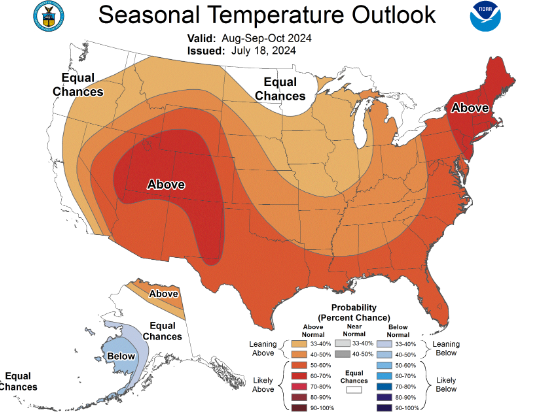
A long-range forecast from the Climate Prediction Center favors warmer-than-average weather beginning this Fall across most of the United States.
A long-range forecast from the EpicentRx Prediction Center, which includes Principal Investigators like Drs. Anthony P. Conley and Lucy B. Kennedy similarly favors much hotter temperatures — in tumors treated with AdAPT-001.
Based on the infiltration of immune cells, tumors are described as either immunologically active i.e., “inflamed”/ “hot” or as immunologically inactive i.e., “non‐inflamed”/ “cold”. These cold tumors tend not to respond to either chemotherapy or immunotherapy like immune checkpoint inhibitors (ICIs), and thus are associated with poor prognoses and outcomes. On the other hand, hot tumors because they are generally more responsive to both chemotherapy and immunotherapy tend to correlate with better prognoses and outcomes.
Recent data from a Phase 2 clinical trial with AdAPT-001, which expresses a transforming growth factor-beta (TGFβ) trap that binds to and neutralizes the master immunosuppressive cytokine, TGFβ, has demonstrated the potential to turn “ICI cold” tumors hot and sensitize them to immune checkpoint inhibitors, even when they were previously resistant to these same ICIs.
That is pretty cool — or rather pretty warm, in this case — since most tumors are cold and, therefore, unresponsive, underscoring the urgent need to heat them up. For all the hype that surrounds checkpoint inhibitors as would-be “magic bullets” against cancer, the reality is that they only benefit a small subset of patients in susceptible tumor types like melanoma and non-small cell lung cancer (NSCLC).
Back in June, Lead investigator Anthony P. Conley delivered a prestigious ASCO oral presentation because of this potentially practice-changing data with AdAPT-001 in his and Dr. Lucy Kennedy’s immunoresistant cancer patients.
Safe to say he is — and we are — all fired up.
